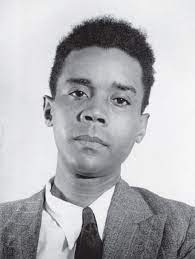James, Cyril L. R.

Bio: (1901-1989) Trinidadian historian. Cyril James was born in Trinidad, which was a British colony at the time, and lived and worked in Trinidad, Britain, and the United States. He didn’t have an academic career instead he worked as a writer journalist and activist. In his historical works, he combines a Marxist approach and a pan-African perspective. He studied issues of race and racism, slavery, colonialism, inequality, and class relations. In the book The Black Jacobins (1938), James studies the revolt of African slaves on the island of Santa Domingo, which was a French colony, and the product of that revolt was the creation of the independent state of Haiti in 1803. He describes the political strength of different races, the relations between them, the circumstances that caused the rebellion, as well as the consequences of the revolution. He believes that the success of the uprising and the gaining of Haiti's independence had a great impact on the French and British empires, but also on the United States.
James also studied popular culture, so in his book, Beyond the Boundary (1963) he explored how cricket and calypso music influenced the creation and development of social institutions and ideologies in the Caribbean. He was a great advocate of anti-colonialism and the independence movements of the Caribbean states, and he hoped that they would unite into the West Indies Federation after gaining independence. He aspired to achieve a society based on socialist values, but also the community values of African societies.
Fields of research
Art Classes Colonialism Culture Empire History Ideology Inequality, Social Morality Race Revolutions Slavery SocialismMain works
World Revolution 1917–1936: The Rise and Fall of the Communist International (1937);
The Black Jacobins: Toussaint L'Ouverture and the San Domingo Revolution (1938);
State Capitalism and World Revolution (1950);
Marxism and the Intellectuals (1962);
Beyond a Boundary (1963).

